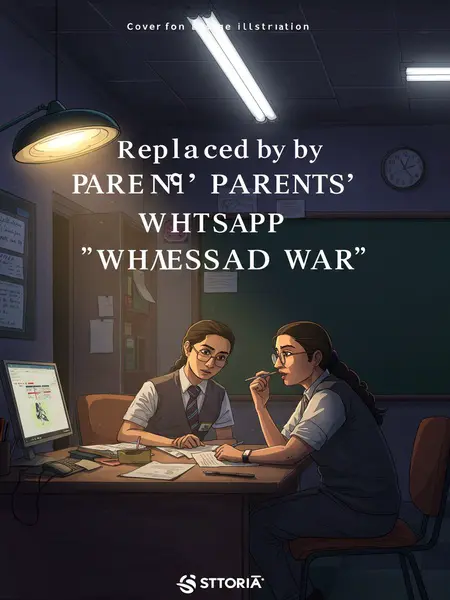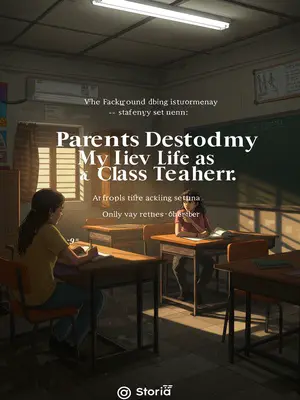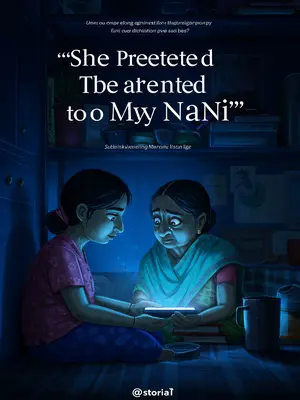Chapter 4: Staffroom Politics
Since I’d said it, I meant it. Once a decision is made, I stand by it. That morning, I sat in the staffroom, sipping chai, waiting to see what would happen next.
For the first period—Class 12C’s maths class—I didn’t plan to go. I closed my register, leaned back, listening to distant tables being recited. My heart felt both heavy and light.
As for who’d go in my place—what did it matter to me?
Ten minutes after the bell, someone knocked on the staffroom door.
"Come in."
I set down my steel flask, paused the comedy video on my phone—two men fighting over a samosa, frozen mid-bite—just as the principal entered. I muted the phone quickly.
He wore his usual crisp shirt, collar starched, face unreadable. I offered him a seat; he waved it off, looking unusually serious.
He took a sip, set his paper cup down with a grave look, and asked, "Kaise ho gaya yeh sab, madam? Itni saal ki teaching ke baad, aap bhi students ke kehne par..."
His tone was tired, not angry. I could sense the strain—the weight of school politics, parent complaints, and staff morale.
He softened: "Aap to samajhdar hain, madam. Yeh sab parents ka pressure hai, kya karein? Aapko pata hai Class 12 kitna important hai."
I laughed—not because it was funny, but because, after so many years, you develop a strange sense of humour about these things.
I said nothing, just pulled out my phone and showed him the WhatsApp chat.
He scrolled, eyebrows knitting tighter with every swipe. Let him see the side of teaching that never makes it into the school magazine.
Not just last night’s messages, but every one since I took over the class. I pointed out the repeated names, the patterns, the personal jabs.
Out of 53 students, almost every parent had made at least five personal attacks.
By the end, my thumb ached. The principal looked rattled, as if he’d opened a box of snakes.
"Yeh pehli baar hai, madam, aise nahi hua pehle," I reminded him quietly.
He nodded slowly, maybe realising that silent endurance is not always virtue.
After reading everything, he fell silent, folding his glasses and rubbing his forehead. The room was still except for the ceiling fan’s rhythmic creak.
He finally said, "Is batch ke parents aur students mein sach mein kuch gadbad hai."
I felt the knot in my chest loosen a bit.
I replied calmly: "Agar school ko lagta hai ki main galat hoon, toh mujhe lower grades ya transfer kar dijiye, ya nikaal dijiye—I won’t object."
He shook his head so vigorously, I almost smiled. "Nahi, nahi, aisa mat sochiye. Hum aapke record ko jaante hain."
I smiled: "Jab maine group mein message bheja, tab hi tayyar thi. Board exams important hain, lekin jab tak students, parents, aur teacher mein itna tension hai, sabko force karke kuch nahi hoga."
"So, main punishment maan loongi, par Class 12C ki class teacher aur maths teacher nahi banungi."
He opened his mouth to protest, then closed it, sighing and standing up. "Theek hai, jab aap itna insist kar rahi hain."
He patted his file, burdened. Glasses back on, he looked at me with utter helplessness.
"Toh ab Class 12C ka kya hoga?" I asked, a hint of mischief in my voice.
He pursed his lips, looking exasperated. After a pause, he said,
"Parents ko lagta hai Prakash theek hai."
Me: "......"
Prakash. The name alone makes students sit up. His reputation is legend—in the worst way.
He’s the most marks-obsessed teacher in the school, the least bothered about student well-being, and a true believer in high-pressure education.
He’ll slap the blackboard with his wooden scale, glare over his glasses, and thunder: "Thak gaye ho? Drop out karo! Weaklings ki jagah nahi hai!"
I could picture his cold stare, the way he’d tap his stick on the table for effect. "Agar relax karna hai, neeche rehna hai, toh so jao. Student ka kaam sirf padhna hai."
His words echo down the corridor, leaving invisible bruises.
If he treated everyone equally, maybe I’d respect him as a colleague. But fairness was never his style.
He bullies the weak, flatters the strong. If a student’s family is well-connected, he’ll bring them sweets and arrange extra coaching. Ordinary kids get ignored or punished.
Last year, more than half his students skipped the board exam due to mental health issues. Some almost jumped from the building. The story made the local newspaper—a short column, but enough to frighten the community.













